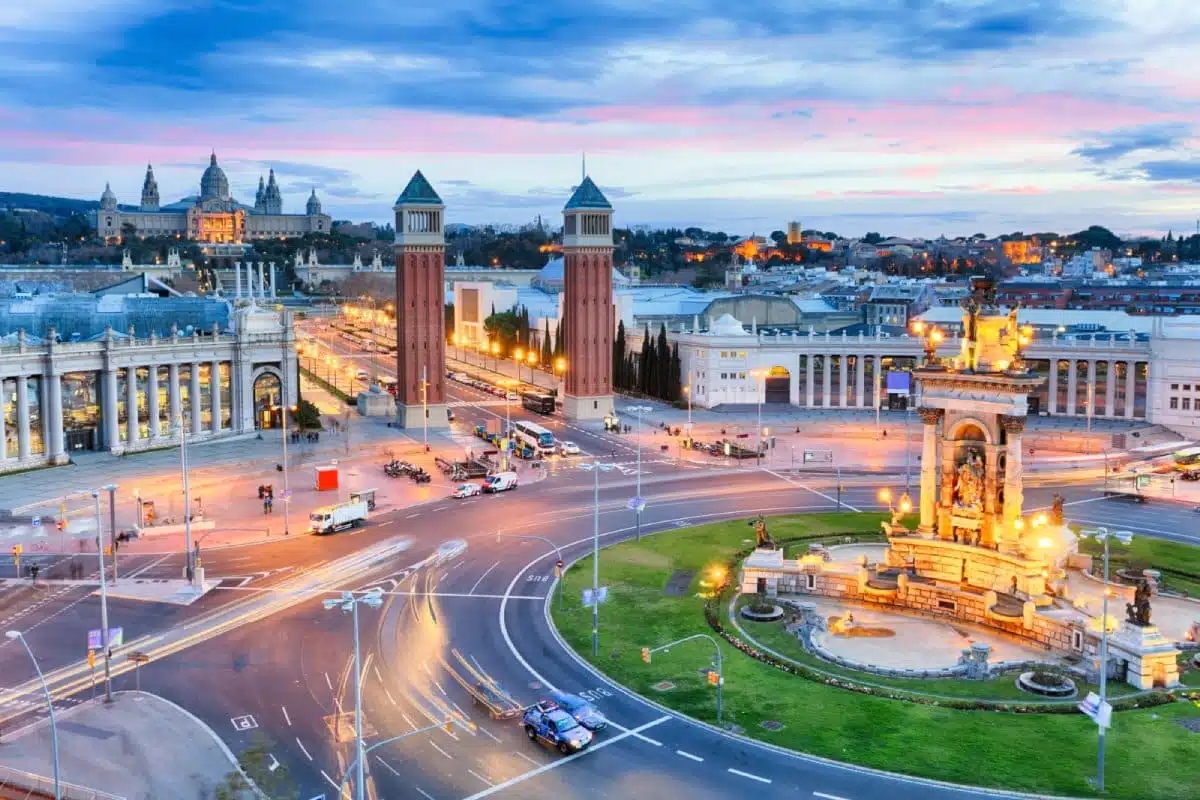Traveler Profile: Katie, UK
Location: Barcelona, Spain
Time of Year: Late spring
Travel Goals: Great photography locations, local culture, Gaudi and great food
Barcelona, the cosmopolitan capital of Catalonia, Spain, is a city where history, art, and modernity blend seamlessly against a backdrop of stunning Mediterranean scenery. A day in Barcelona offers an immersive journey through its iconic landmarks, from the architectural masterpieces of Antoni Gaudí to the historic alleys of the Gothic Quarter and the vibrant displays at the Magic Fountain of Montjuïc. This guide provides a curated itinerary for exploring Barcelona’s rich cultural tapestry, ensuring a memorable experience that captures the essence of this dynamic city.
Visit the Sagrada Familia in the Morning

Image Credit: Shutterstock / TTstudio
The Basilica de la Sagrada Familia, Antoni Gaudí’s unfinished masterpiece, showcases the architect’s innovative vision and dedication to his craft. This architectural feat, which began construction in 1882, combines Gothic and Art Nouveau forms, creating a unique and awe-inspiring experience for visitors. The intricate facades and the vast, light-filled interior, with its soaring columns and stained glass windows, evoke a profound sense of spirituality and wonder.
My Insider’s Tip: Purchase tickets online in advance to avoid long queues and ensure entry at your preferred time. Opt for a guided tour or an audio guide to gain deeper insights into Gaudí’s symbolic designs and the basilica’s ongoing construction, which is funded entirely by visitor contributions.
Stroll Through Park Güell
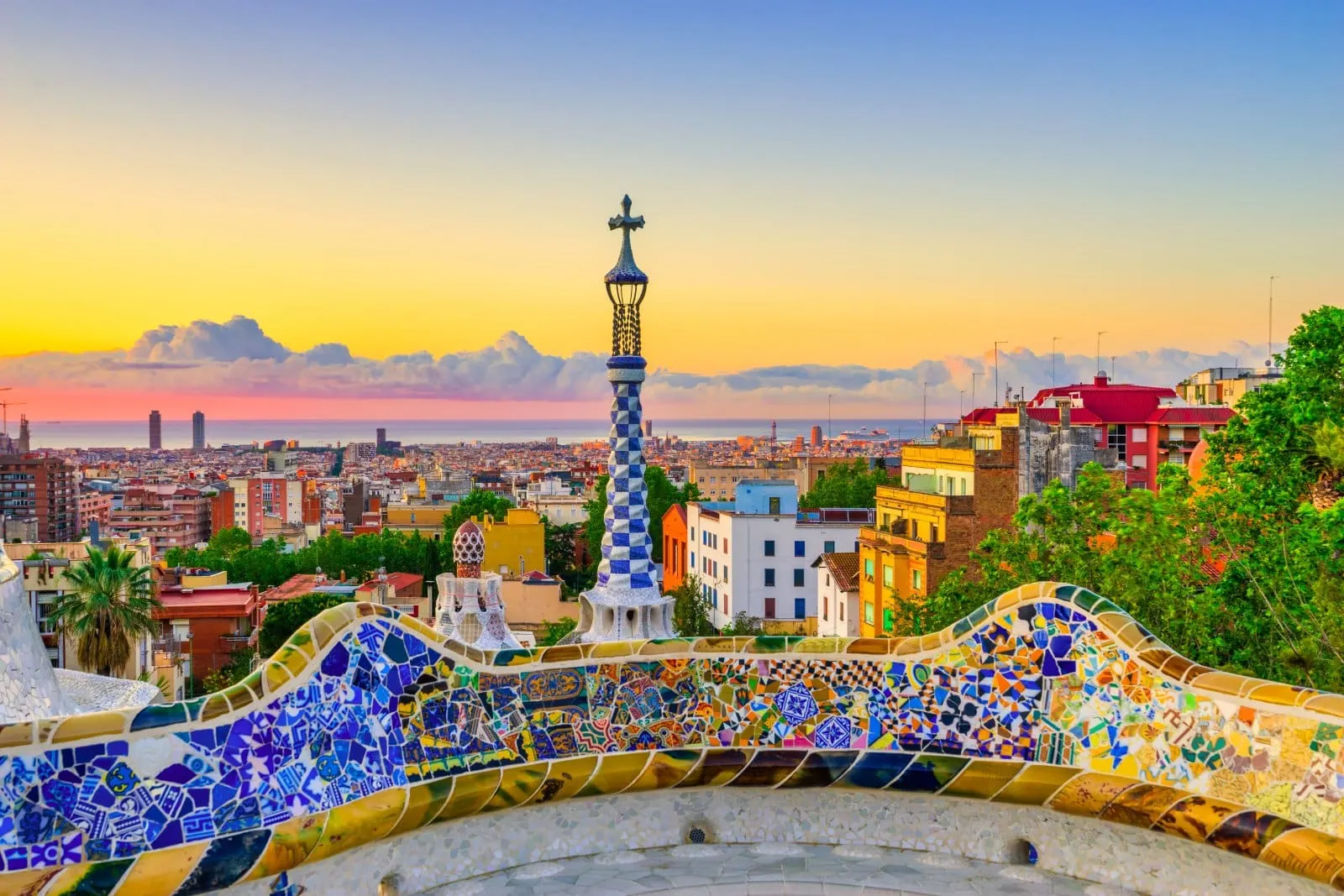
Image Credit: Shutterstock / Pajor Pawel
Park Güell is another of Gaudí’s creations, originally conceived as a residential garden city but now a public park that enchants visitors with its whimsical designs and panoramic views of Barcelona. The park is adorned with colorful mosaics, serpentine benches, and fantastical structures that blend with the natural landscape, offering a magical escape from the urban bustle. The main terrace’s undulating bench, covered in vibrant tile shards, provides a perfect vantage point for admiring the city below.
My Insider’s Tip: Entry to the Monumental Zone, which includes the park’s most iconic features, requires a ticket. It’s advisable to book your visit early in the day to enjoy cooler temperatures and fewer crowds, allowing for a more leisurely exploration of Gaudí’s imaginative world.
Tapas Lunch in the Gothic Quarter

Image Credit: Shutterstock / grigoriy belyaevn
The Gothic Quarter, with its labyrinthine streets and medieval architecture, is the heart of old Barcelona. It’s also a culinary hotspot, where traditional tapas, bars, and modern eateries offer a taste of Catalonia’s rich gastronomy. A tapas lunch allows you to sample various dishes, from patatas bravas and jamón ibérico to local cheeses and seafood, accompanied by Catalan wines or a refreshing vermouth.
I chose La Plata, a renowned tapas bar serving traditional Spanish tapas for over 70 years. Known for its menu of six tapas items and an extensive selection of beverages, La Plata has earned a reputation among locals for its quality and atmosphere. The Pescaditos Fritos (fried fish) is excellent among the tapas. This dish highlights the simplicity and appeal of Spanish tapas, featuring small fish fried to perfection.
My Insider’s Tip: For an optimal experience at La Plata, consider visiting just before the lunchtime rush to secure seating in this compact venue. A glass of Vermouth is recommended to accompany your tapas; its distinctive flavor complements the traditional dishes well
Afternoon at the Picasso Museum
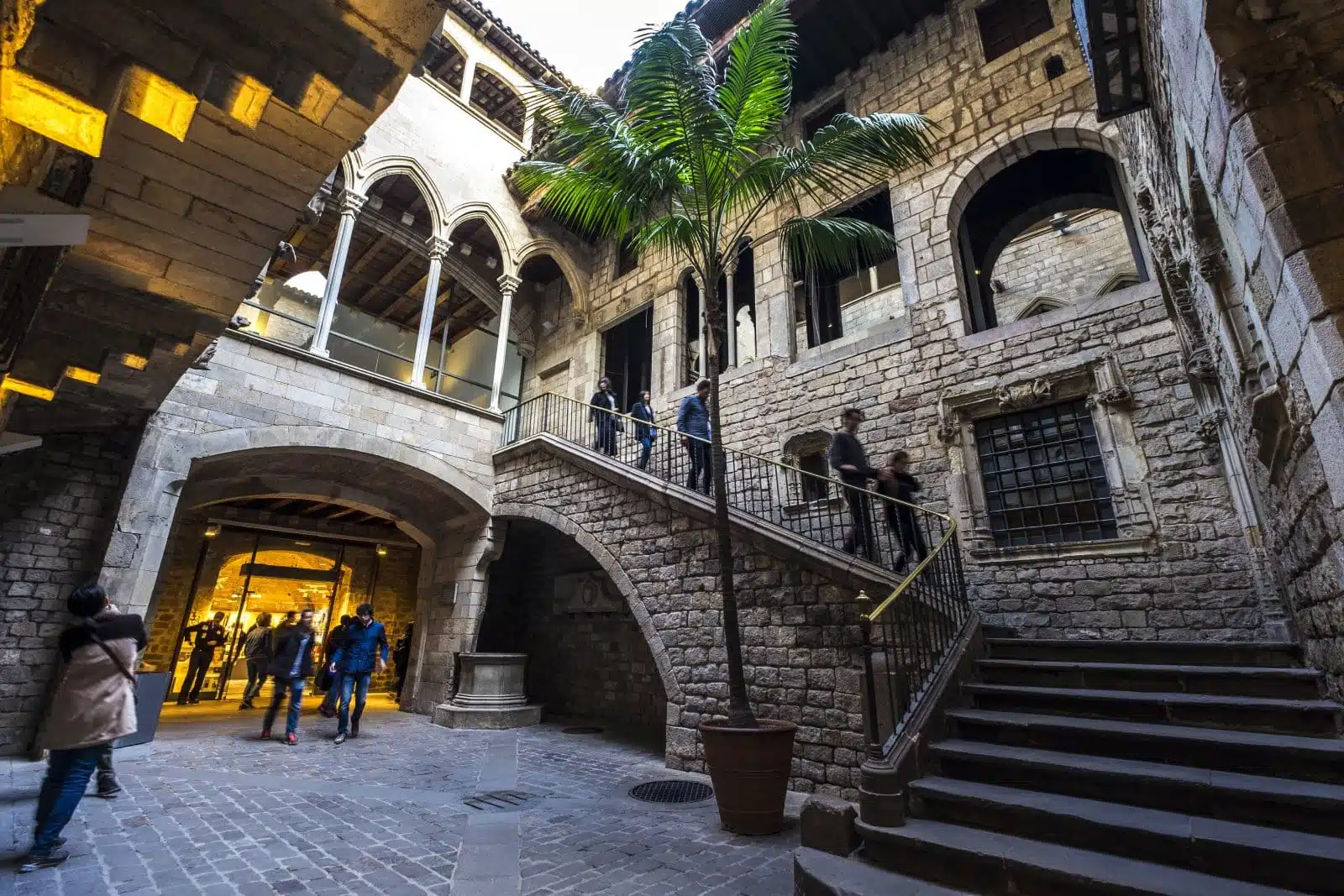
Image Credit: Shutterstock / csp
The Picasso Museum, housed in five adjoining medieval palaces in the Born district, is a tribute to Pablo Picasso’s formative years and his deep connection to Barcelona. The museum’s collection spans the artist’s career, from his early academic studies to his later experiments with Cubism, showcasing over 4,000 works. The intimate setting and chronological arrangement provide a unique perspective on Picasso’s artistic evolution and his influence on modern art.
My Insider’s Tip: To avoid crowds, visit the museum in the early afternoon (hence the early lunch) or book a ticket online for a specific entry time. Don’t miss the temporary exhibitions, which often explore lesser-known aspects of Picasso’s work or his relationships with other artists.
Evening at the Magic Fountain of Montjuïc
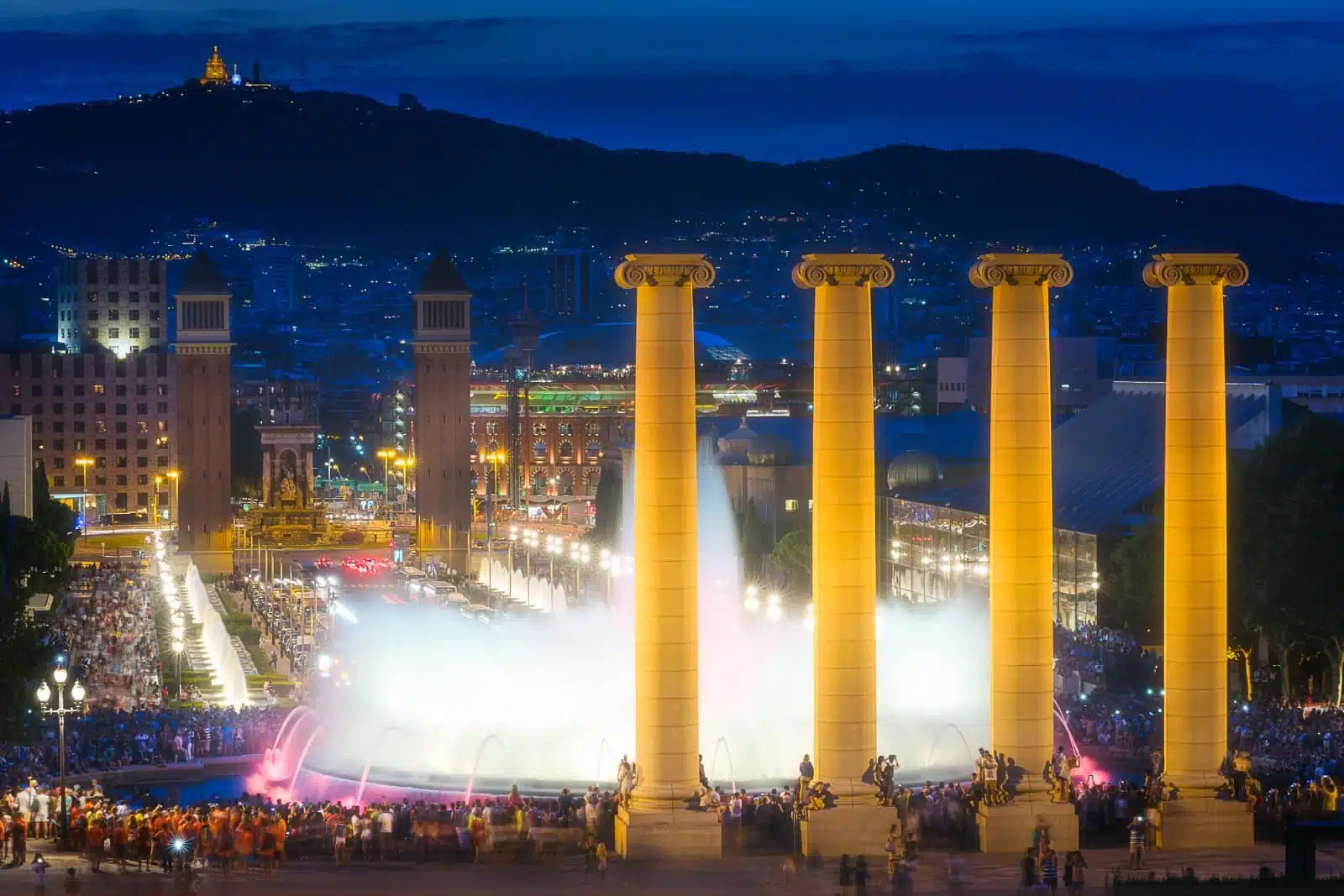
Image Credit: Shutterstock / Boule
The Magic Fountain of Montjuïc, located at the foot of the Palau Nacional, offers a spectacular display of light, water, and music. Designed for the 1929 International Exposition, the fountain enchants visitors with its choreographed performances, where jets of water are illuminated in a rainbow of colors, synchronized to various musical genres. This free, open-air show provides a fitting end to a day in Barcelona, combining artistry and technology to celebrate water and light.
My Insider’s Tip: Check the schedule in advance, as showtimes vary depending on the season. Arrive early to secure a good viewing spot, especially during peak tourist season. The area around the fountain can be crowded, so secure personal belongings.
Dinner at Xemei, El Poble-sec
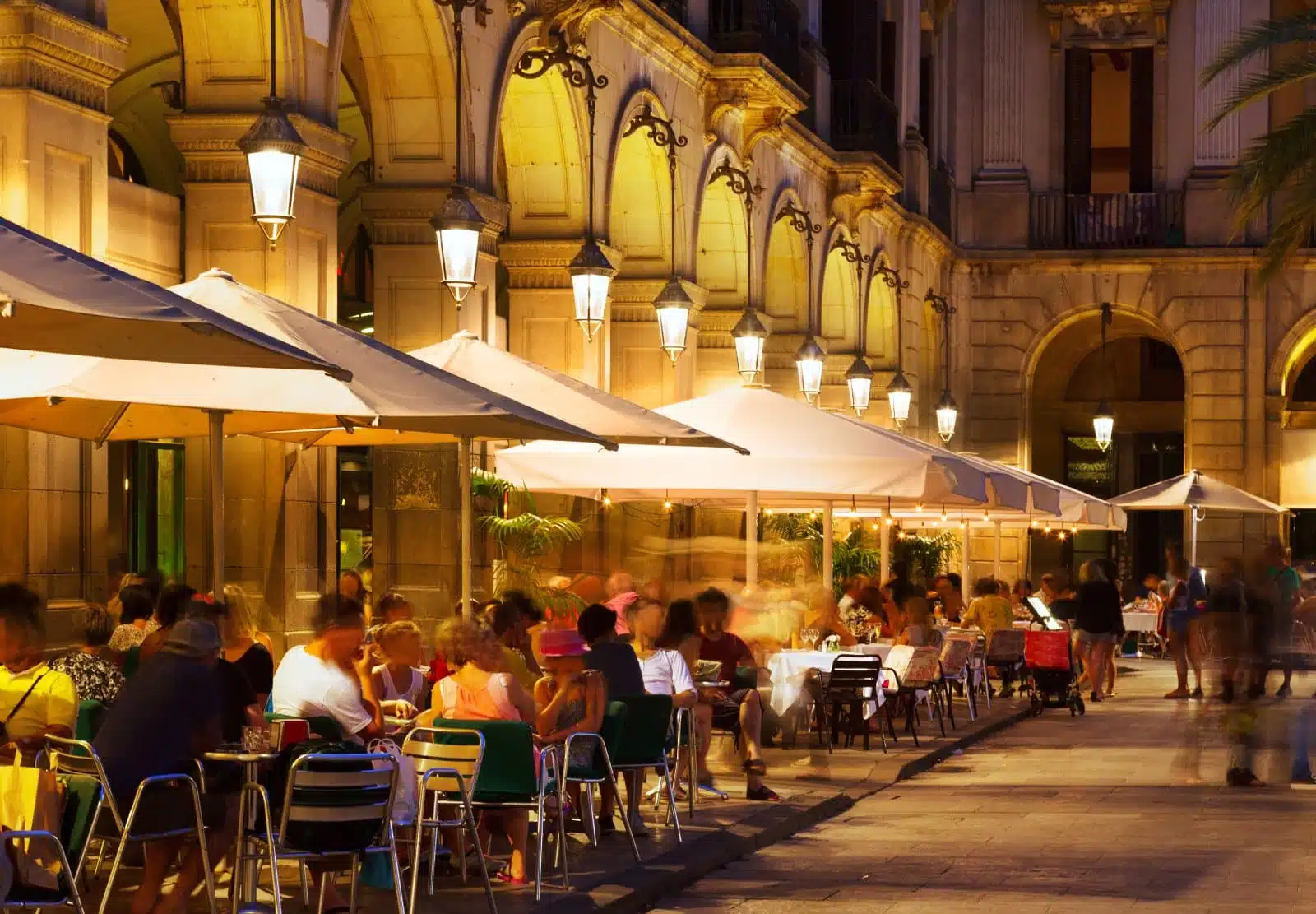
Image Credit: Shutterstock / BearFotos
After reading some excellent reviews, I dined in Xemei, located in the El Poble-sec neighborhood of Barcelona, is an Italian restaurant specializing in Venetian cuisine. The restaurant is known for its authentic preparation of fish dishes, drawing inspiration from traditional Venetian recipes. The menu features a variety of seafood, including ‘sarde’ (Venetian pickled sardines), alongside a selection of cod, baked mackerel, and marinated anchovies. Xemei’s commitment to replicating the culinary experience of Venice has made it a favored destination for locals and tourists seeking Italian cuisine in Barcelona.
My Insider’s Tip: Make reservations at Xemei due to its popularity and limited seating. For those interested in exploring the breadth of the menu, asking the staff for daily specials or recommendations can provide insight into seasonal dishes or lesser-known Venetian specialties.
History of Barcelona
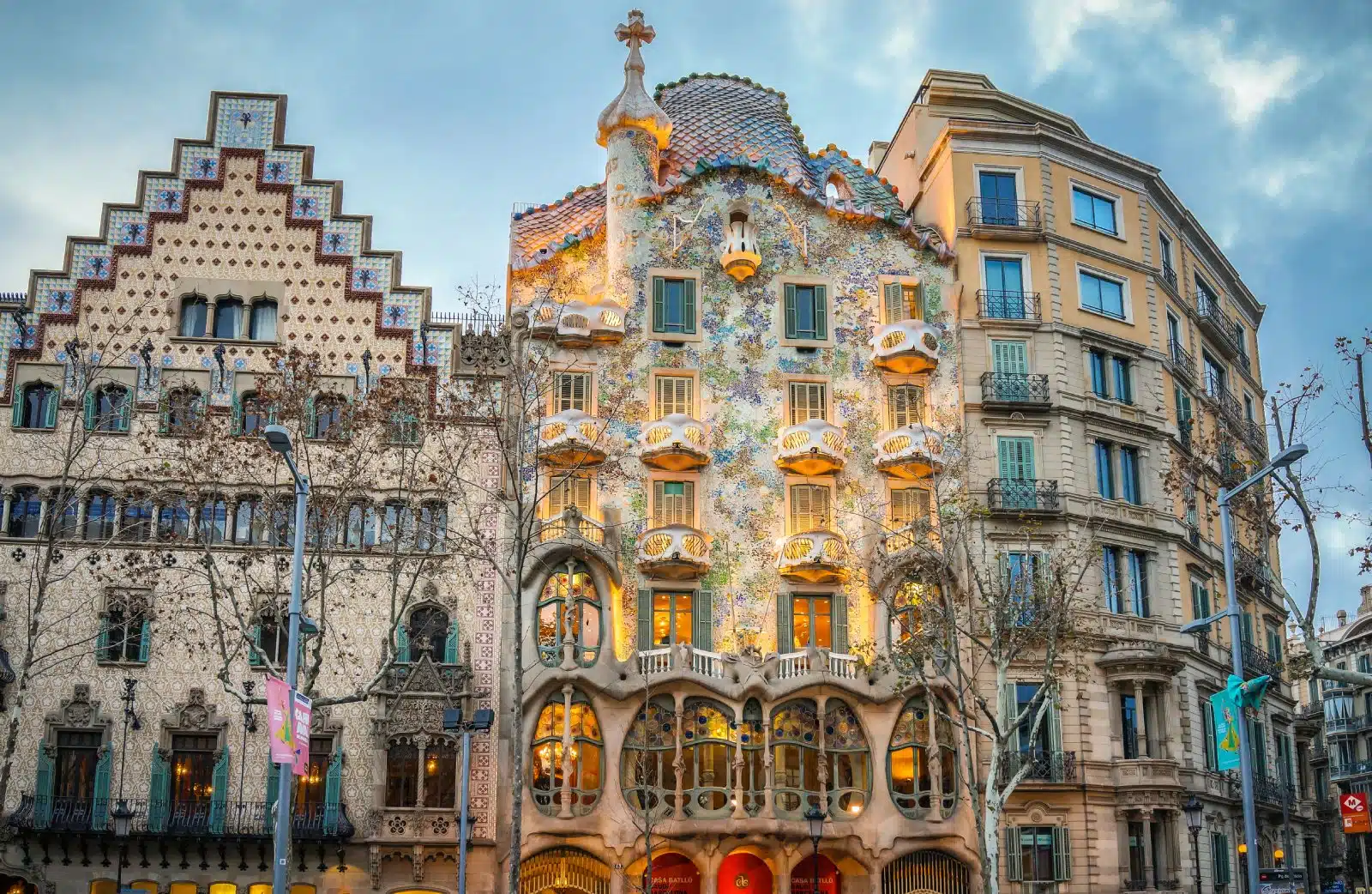
Image Credit: Shutterstock / Alan Tan Photography
Barcelona’s history is complex and weaves together periods of prosperity and decline, innovation and tradition, conflict and harmony. This rich historical narrative has shaped Barcelona into today’s vibrant and dynamic city.
Ancient Foundations and Roman Barcelona: Barcelona’s origins can be traced back to the ancient Iberian settlement of Barkeno. The Romans established a colony called Barcino in the 1st century BC, strategically situated on a hill near the Mediterranean Sea. The remnants of the Roman period, including parts of the city walls, can still be seen in the Gothic Quarter, bearing witness to Barcelona’s ancient roots.
Medieval Prosperity and the Crown of Aragon: The Middle Ages marked a period of expansion and prosperity for Barcelona. As a major maritime power in the Mediterranean, the city flourished through trade and became a political center of the Crown of Aragon. The construction of iconic Gothic buildings and churches during this era, such as the Barcelona Cathedral, reflects the city’s wealth and importance.
The Spanish Empire and Catalan Identity: The union of the Crowns of Castile and Aragon in the 15th century integrated Barcelona into the burgeoning Spanish Empire. However, the subsequent centuries saw Barcelona and Catalonia frequently at odds with the central Spanish authority, culminating in several revolts. The War of the Spanish Succession in the early 18th century ended with the defeat of the Catalan forces, leading to the suppression of Catalan institutions and rights, a theme that has recurred in Barcelona’s history.
Industrial Revolution and Modernisme: The 19th century brought the Industrial Revolution to Barcelona, transforming it into a center of textile production and catalyzing urban expansion. This period also saw the rise of the Modernisme movement, with architects like Antoni Gaudí leaving an indelible mark on the city’s landscape. The Eixample district, characterized by its grid pattern and modernist architecture, exemplifies the city’s growth and artistic innovation during this time.
20th-Century Challenges and Olympic Renewal: The 20th century was marked by turmoil, including the harsh repression during Franco’s dictatorship, which sought to suppress Catalan culture and autonomy. The end of the dictatorship and restoring democracy in Spain led to a resurgence of Catalan identity and autonomy. The 1992 Olympic Games were pivotal for Barcelona, triggering major urban renewal projects that transformed the city’s infrastructure and international image.
21st-Century Barcelona: Today, Barcelona is a leading tourist destination known for its rich cultural heritage, architectural wonders, and vibrant lifestyle. The city continues to face challenges, including debates over tourism and Catalan independence, but it remains a symbol of resilience and diversity.
When to Travel
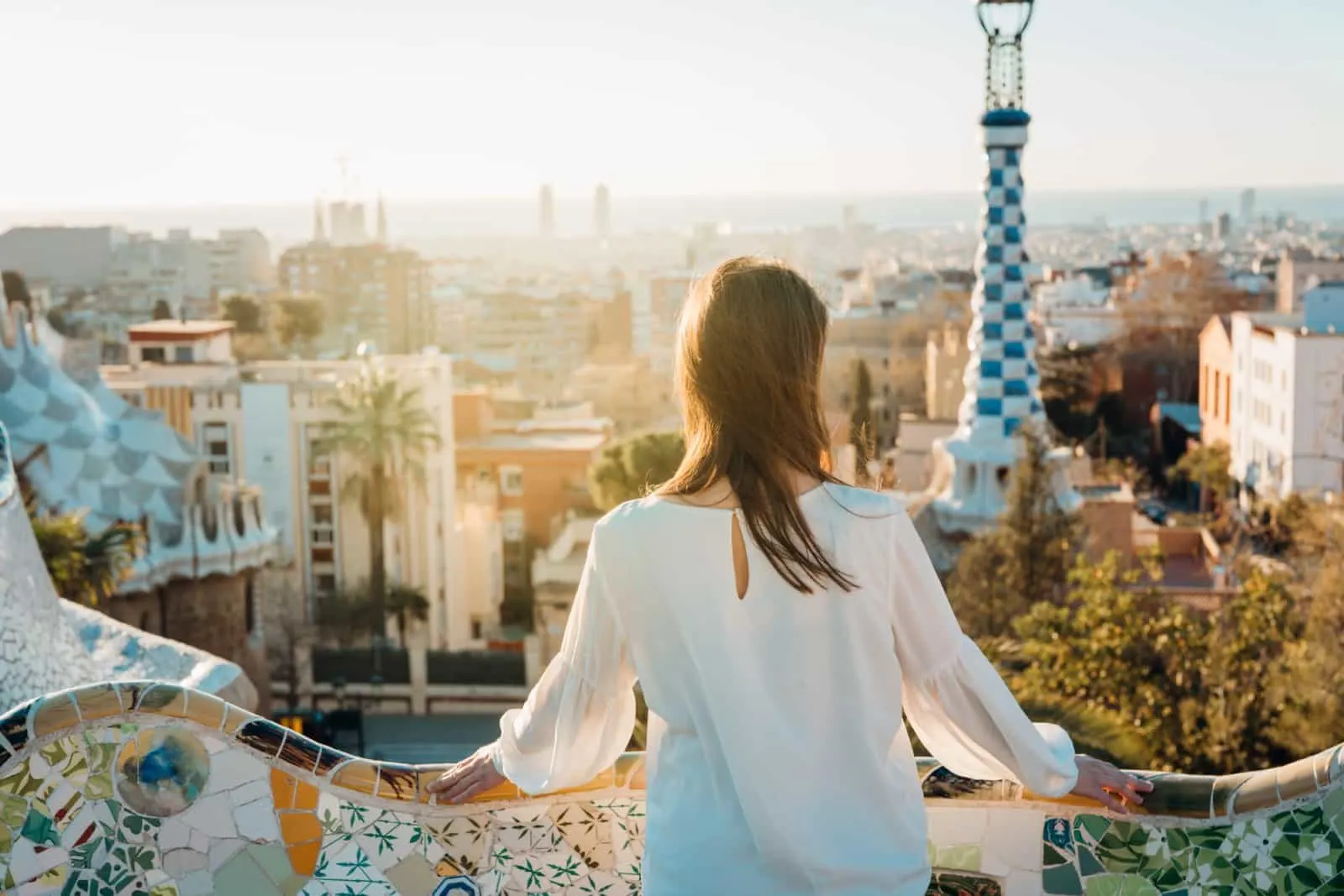
Image Credit: Shutterstock / eldar nurkovic
The best times to visit Barcelona are from April to June and from late September to November. These months offer mild weather, fewer crowds, and lower accommodation prices. The summer months, while popular, can be hot and crowded, with higher prices for travelers.
How to Get There

Image Credit: Shutterstock / Look Studio
Barcelona is well-connected by air, with the Barcelona-El Prat Airport is a major hub for international and domestic flights. The city’s extensive public transportation network, including metro, buses, and trains, makes it easy to reach and navigate the airport. High-speed trains and major highways also link Barcelona with other Spanish cities and European destinations.
The Bottom Line
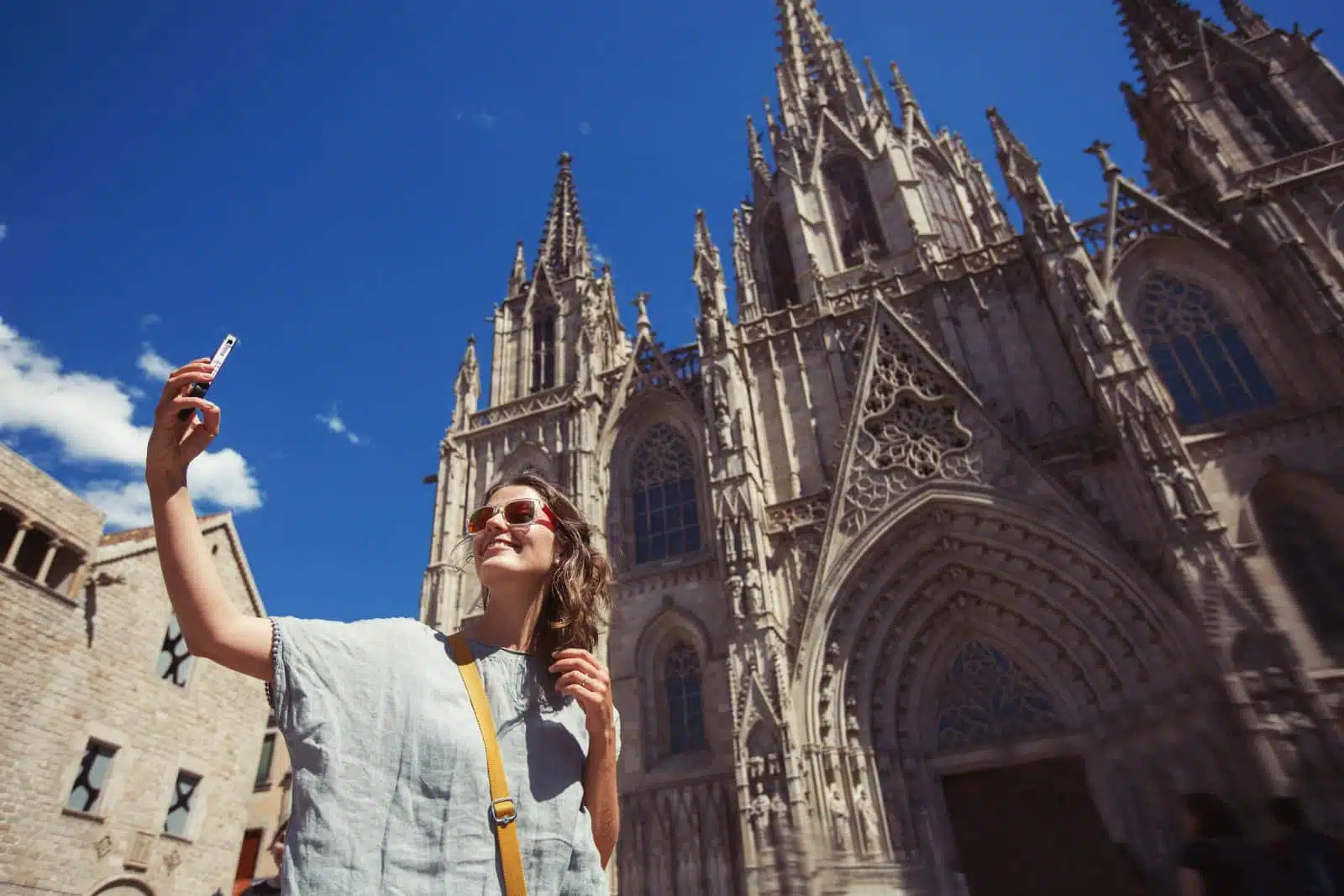
Image Credit: Shutterstock / AnnaTamila
A day in Barcelona allows you to immerse yourself in a city where every corner tells a story, from the surreal architecture of Gaudí to the historic streets of the Gothic Quarter. By following this guide, you’ll experience the essence of Barcelona’s culture, history, and art, leaving you with memories of a constantly evolving city while staying true to its roots.
More From The Green Voyage
Top 10 Trending Travel Destinations 2024
6 Essential Banking Apps for International Travel – Managing Your Finances on the Go
Traveling With Kids – 10 Tips to Create Memorable Family Holidays
The post One Day in…Barcelona, Spain first appeared on The Green Voyage.
Featured Image Credit: Shutterstock / TTstudio.
For transparency, this content was partly developed with AI assistance and carefully curated by an experienced editor to be informative and ensure accuracy.
Tips for Trip Success
Book Your Flight
Find an inexpensive flight by using Kayak, a favorite of ours because it regularly returns less expensive flight options from a variety of airlines.
Book Your Hotel or Special Accommodation
We are big fans of Booking.com. We like their review system and photos. If we want to see more reviews and additional booking options, we go to Expedia.
You Need Travel Insurance!
Good travel insurance means having total peace of mind. Travel insurance protects you when your medical insurance often will not and better than what you get from your credit card. It will provide comprehensive coverage should you need medical treatment or return to the United States, compensation for trip interruption, baggage loss, and other situations.Find the Perfect Insurance Plan for Your Trip
